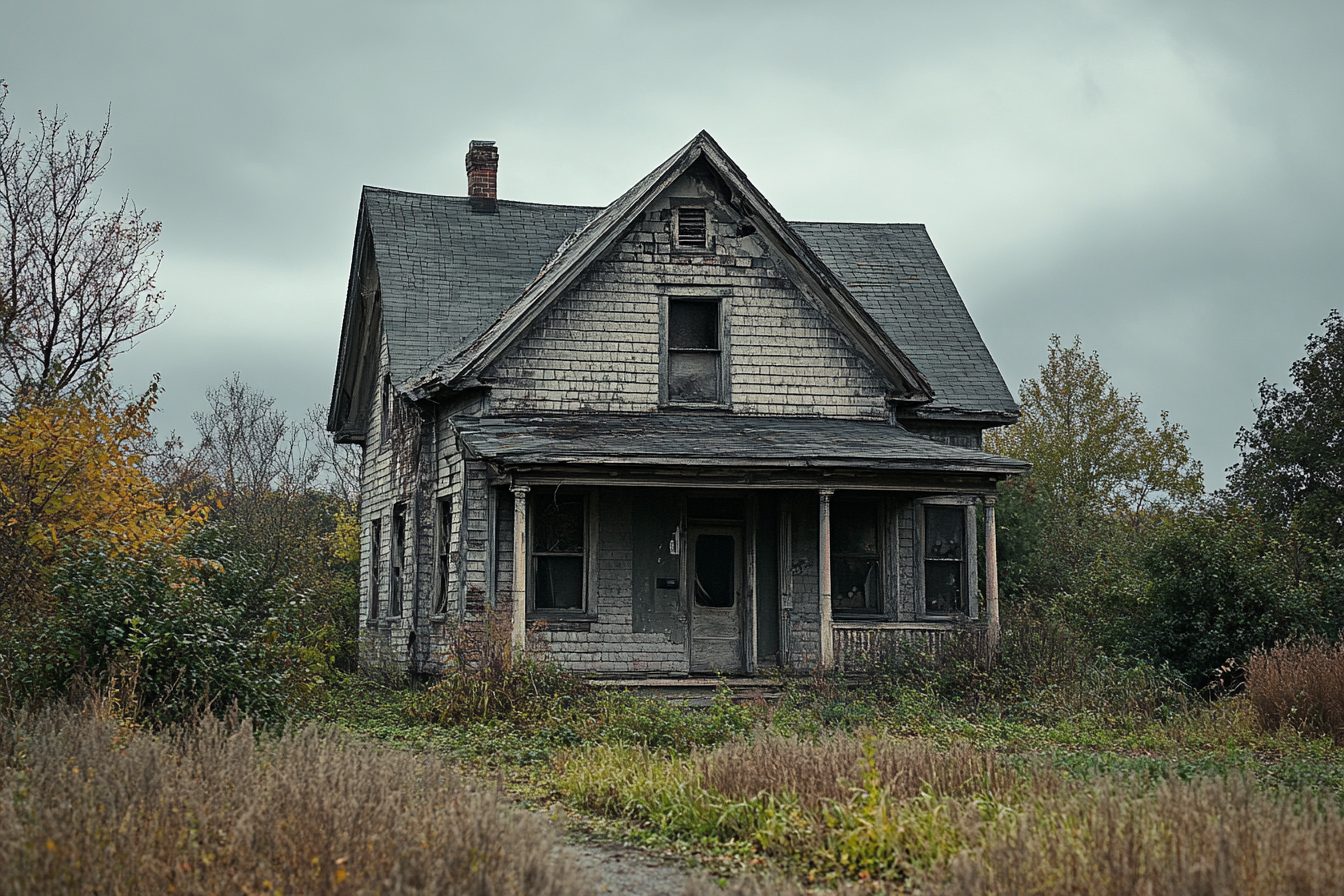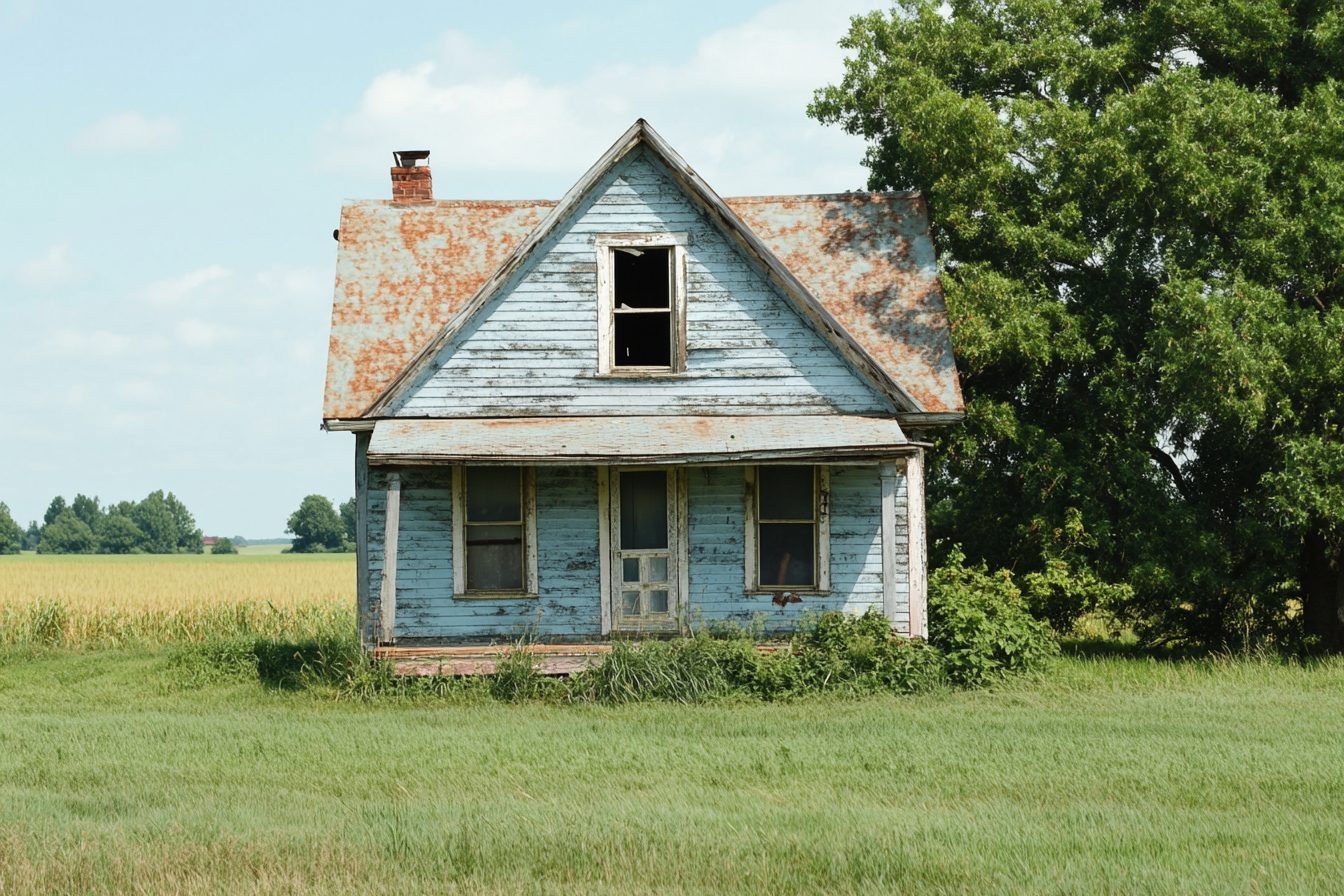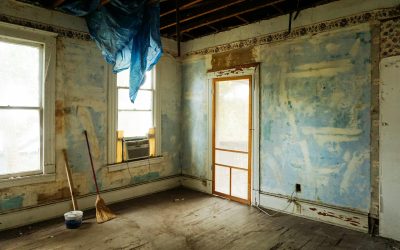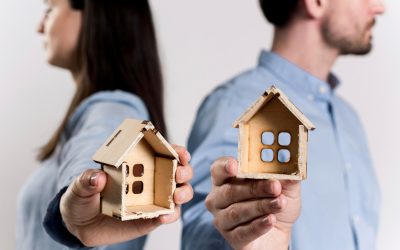Your residence functions as a security vault that shields your wealth. You need it to remain sturdy and protected. Protecting your real estate through personal effort can assist you in achieving the optimal selling price. However, initially, you must understand what damages property worth to guarantee your investment remains protected and stable.
What damages property worth may include elements unique to your residence, like postponed upkeep problems, aging kitchens and bathrooms, or a loud environment, or through external influences like your neighborhood real estate conditions or the condition of the broader economy. Although you cannot take measures to handle outside pressures, you can take steps to enhance your home’s worth.

Property Value Killers: Elements That Could Tank Your Home’s Worth
Postponed or ignored upkeep
Postponed or ignored upkeep is the quickest route to seeing your property lose value. A minor leak from your hot water tank might appear insignificant until it seeps into your foundation and creates structural cracks. Even when all your home systems are currently operational, without regular upkeep, equipment frequently fails and requires replacement, creating costly expenses.
Conducting a thorough inspection of every area in your property and performing routine checks represents one of the most effective methods to understand your home’s condition and evaluate your present circumstances. The Healthy Homes Maintenance Checklist released by the National Center for Healthy Housing (NCHH) can assist you in identifying potential issues.
Equipment that has sustained damage or problems that might compromise the entire property should receive immediate attention, including:
- Aging heating and cooling systems
- Insect infestation damage
- Rotting timber
- Deteriorating foundation
- Worn electrical wiring
- Fractured driveways
- Faulty plumbing
- Broken gutters
- Absent roofing materials
Renovations executed improperly or without proper permits
Occasionally, tackling your own renovations can result in significant savings, but only when the work meets professional standards. Otherwise, your DIY endeavors can drain your finances if corrections become necessary. Additionally, when construction permits are overlooked, this may lead to code infractions. Eventually, this problem might also impact insurance coverage, particularly claims resulting from faulty electrical work or plumbing. The expense of covering fire or water damage could mean thousands of dollars from your own funds.
Antiquated kitchens and restrooms
When your kitchen appears as though it belonged in That ’70s Show, complete with its original avocado green styling, potential buyers likely won’t find it appealing.
“A purchaser won’t necessarily embrace a 1970s stove just because it functions,” explains Pratt.
Similarly, a restroom that’s completely pink, including every fixture, can be unforgettable for all the wrong reasons.
“You’ll notice this frequently in properties where they’ll update everything except that single bathroom, and that one bathroom dates back to 1970, looking terrible,” states Andrew Oldham. “Yet even when browsing through 30 photos, that’s all you’ll recall. When buyers describe the property to us, they mention, ‘Oh yes, that’s the house with the pink bathroom.'”
Purchasers who don’t appreciate your vintage aesthetic will be estimating renovation costs to modernize the kitchen and bathroom.
When you’re considering remodeling because you plan to sell shortly, bright, neutral kitchens and bathrooms can help draw buyers.
Extremely customized modifications
Your property should express your individuality, but when selling time arrives, heavily personalized areas can work against you. Distinctive elements like floor-to-ceiling fish tanks, converted garage fitness areas, or bespoke home theaters might not appeal to typical buyers.
Excessive customization can make a property seem less versatile. When renovating with future sales in mind, choose neutral styles that enable prospective buyers to envision their own lives in the area.
Poor craftsmanship
Errors occurring during your home’s construction or during renovations can impact your property’s worth, particularly during the final assessment. These mistakes typically result from contractors or DIY homeowners attempting to cut costs or time during construction, renovation, or repairs, but inferior craftsmanship undermines quality and can decrease your home’s long-term value.
According to Pratt, every repair can become an additional cost the buyer might attempt to subtract from the asking price. “They’ll frequently examine the functionality of everything, including kitchen cabinetry.”
Buyers discovering problems caused by poor craftsmanship will often submit lower offers to compensate for repair expenses, including items like:
- Crooked tile work
- Distorted flooring
- Poorly planned additions
- Unbalanced decking and railings
- Spaces between flooring and walls or doorways
- Insufficient electrical work
Poor landscaping
Your curb appeal partially depends on actually viewing your home’s main features from the street. When your house appears to require a machete for front door access, it’s time to seriously examine your landscaping.
Initial impressions count, and untamed shrubs or dying vegetation can convey the wrong impression. Inadequate landscaping indicates negligence and suggests larger maintenance problems within the property. Dead vegetation can also create safety risks, particularly in areas prone to severe weather. Having a property consumed by vegetation, shrubs, and weeds isn’t just unappealing but can also generate dangers. Excessive growth can create fire risks in certain areas, or draw insects and other pests that might harm your property.
Yard cleanup, vegetation trimming, fresh mulch application, and colorful flower planting can generate immediate curb appeal, frequently at relatively low expense compared to major repairs.
Weak or compromised roofing
Maintaining a sturdy roof overhead protects everything beneath and can significantly impact your overall property worth. Warning signs that your roof might require attention include physical deterioration, exhausted shingles, or visible leaks.
“Needing roof replacement isn’t unusual, and that’s among the major expenses that sellers must handle when preparing properties for market. It might cost anywhere from $2,000 to $40,000 for repairs. Therefore, we typically arrange for roof inspections early on,” Andrew Oldham clarifies.
Offensive smells (animals, mildew, tobacco smoke)
Foul odors create immediate negative reactions. Persistent smells from animals, mildew, cooking, or tobacco can make properties feel unclean even when they’re immaculate. Additionally, odors indicate concealed issues like moisture damage or inadequate ventilation.
Before marketing, thoroughly clean carpeting, repaint surfaces, and utilize ozone equipment when necessary. Sometimes, hiring professional cleaning services ensures your property smells as fresh as it appears.

What Damages Property Value: Surrounding Influences
Excessive sound pollution
Active highway exits or emergency facilities like police stations, fire departments, or medical centers that utilize loud sirens represent forms of acoustic disturbance. Potential purchasers typically consider this factor during property visits and assess what sounds penetrate your home’s interior. When noise levels are excessive, they might abandon the purchase entirely or submit reduced offers.
Sex offenders registered in the vicinity
Based on Safehome.org data, approximately 795,000 individuals appeared on sex offender databases in 2024. When registered sex offenders reside in your neighborhood, this can impact your property’s worth, reducing it because of security considerations.
Abandoned or deteriorating nearby properties
Properties that suffer severe neglect, often called “Zombie houses” due to their vacant and decaying condition, can damage attractive communities. These rundown exteriors can harm the market value of surrounding homes in the neighborhood.
“We brought a client to an excellent Carmel [California] neighborhood to view this stunning property they discovered on MLS and various listing platforms. Upon arrival, just two properties away, we encountered something resembling the Amityville Horror house. This property contained old tires, rusty farm equipment, and featured a mannequin positioned in a chair. Honestly, it was concerning. Despite being surrounded by gorgeous homes, that single property damaged the entire neighborhood’s appeal,” explains Jennifer Oldham.
Road noise disturbance
“From a seller’s pricing standpoint, properties located on heavily trafficked streets will experience some value reduction compared to homes on quiet interior lots without traffic-related noise,” notes Pratt.
Sound pollution ranks among the primary reasons buyers withdraw from purchases. Properties situated near freeways, airports, railway lines, or bustling commercial zones typically command lower prices because persistent noise becomes difficult to overlook. Even within the residence, vibrations or street sounds can eliminate buyer interest. For properties in loud areas, installing noise-reducing windows or emphasizing peaceful interior rooms can help minimize this disadvantage.
Although noise can decrease property values, Pratt mentions that buyers often accept this trade-off when considering homes in those locations. Methods to reduce noise impact include upgrading to better-insulated windows and adding vegetation like bushes or hedges for buffering. He also suggests installing a sturdy six-foot privacy barrier to help reduce sound levels.
Geographic positioning matters most
“Location remains the most critical factor in property valuation and surrounding property assessment,” states Pratt. “Premium neighborhoods and centrally positioned areas typically achieve higher per-square-foot sales prices than peripheral locations, assuming identical features.”
Additionally, proximity to undesirable facilities or unwanted businesses can negatively impact overall property worth through increased noise, contamination, or traffic congestion. Examples include:
Waste disposal sites or garbage dumps Energy generation facilities Medical institutions Underperforming schools Adult entertainment venues Burial grounds or mortuary services Firearms training facilities Wastewater treatment plants
Adjacent properties with poorly maintained landscaping
Your neighbor’s unsightly lawn might frustrate you, but you cannot control who resides nearby or their yard maintenance standards. However, sometimes you can collaborate on shared fencing or landscaping projects along property boundaries and split expenses, benefiting both parties and creating mutual satisfaction.
Electric transmission line proximity
Though power lines represent necessary infrastructure, they hardly serve as attractive features. Properties situated near high-voltage electrical lines frequently encounter negative perceptions regarding health risks, regardless of scientific validity. Even with inconclusive research, perceived dangers can discourage potential buyers. Beyond safety concerns, the visual presence of massive power structures can diminish street appeal. For homes near electrical lines, concentrate on enhancing landscape design and interior improvements to counterbalance buyer concerns.
Problematic adjacent facilities
Residing near correctional facilities, mortuaries, waste sites, or loud manufacturing operations can reduce your home’s market value. Buyers generally avoid locations that seem disturbing or impractical. Even with personal attachment to your residence, the surrounding environment may create negative initial impressions that prove difficult to overcome. When selling, emphasize positive home features, such as interior renovations or expanded lot size, to redirect attention from nearby drawbacks.
Weak educational district performance
Regardless of having children, school district quality significantly influences your property’s resale potential. Numerous buyers prioritize educational systems, and homes within top-rated districts often maintain stronger values during market fluctuations. Conversely, poor educational ratings can reduce buyer interest and decrease pricing. When selling in underperforming districts, highlight alternative benefits like convenient commuting, nearby recreational areas, or community facilities.
Conclusion
Protecting your property’s value requires vigilance on multiple fronts. While external factors like neighborhood conditions, noise pollution, and nearby facilities remain largely beyond your control, homeowners can take decisive action on property-specific issues that significantly impact value. Deferred maintenance stands out as the most damaging factor under your control, a small leak today can become a structural nightmare tomorrow, potentially costing thousands in repairs and lost equity.
The key to maintaining property value lies in proactive maintenance, quality workmanship, and making thoughtful renovation choices. Regular inspections, timely repairs, and avoiding overly personalized modifications will serve you well when selling time arrives. Remember that first impressions matter tremendously; poor curb appeal and offensive odors can eliminate buyer interest before they even step inside your home.
While you cannot relocate your property away from busy roads or change your school district, you can control how well you maintain your home’s systems, appearance, and overall condition. By addressing controllable factors promptly and professionally, you’ll protect your investment and position your property competitively in the market, regardless of external challenges.
FAQs
What single factor decreases property value the most?
Deferred or ignored maintenance is typically the most damaging factor to property value. A minor issue like a small leak can escalate into major structural problems, foundation damage, or system failures that cost thousands to repair. Regular maintenance and prompt attention to problems prevent small issues from becoming value-killing disasters.
How much can poor curb appeal really affect my home’s value?
Poor curb appeal can significantly impact your property value because it creates negative first impressions that are difficult to overcome. Overgrown landscaping, dead vegetation, and an unkempt exterior suggest neglect and larger maintenance issues. Fortunately, improving curb appeal through yard cleanup, trimming, fresh mulch, and colorful plantings is often one of the most cost-effective ways to enhance property value.
Should I avoid all DIY renovations to protect my property value?
Not necessarily, but DIY renovations must meet professional standards to avoid decreasing property value. Improperly executed renovations, especially those done without proper permits, can create code violations and insurance issues. If you’re not confident in your skills for major work like electrical, plumbing, or structural changes, hiring professionals is worth the investment to protect your home’s value.
Can I do anything about external factors that hurt my property value?
While you cannot control external factors like noise pollution, nearby facilities, or school district ratings, you can minimize their impact. For noise issues, consider noise-reducing windows, privacy fencing, or landscaping buffers. When selling, emphasize positive features like interior renovations, lot size, or convenient location benefits to redirect attention from external drawbacks.
How do outdated kitchens and bathrooms specifically impact property value?
Severely outdated kitchens and bathrooms can significantly reduce buyer interest and property value because they represent major renovation expenses to potential purchasers. Buyers viewing a 1970s avocado green kitchen or completely pink bathroom will factor renovation costs into their offers, often submitting lower bids to account for modernization expenses. These rooms are focal points that buyers remember most, making updates in these areas particularly valuable investments.
What’s the difference between customization and over-customization when it comes to property value?
Customization becomes problematic when it makes your property seem less versatile to typical buyers. While personal touches are normal, extreme modifications like floor-to-ceiling fish tanks, converted garage gyms, or highly specialized rooms may not appeal to most purchasers. When renovating with future sales in mind, choose neutral styles that allow potential buyers to envision their own lives in the space rather than highly specific or unusual features that limit the property’s appeal.








